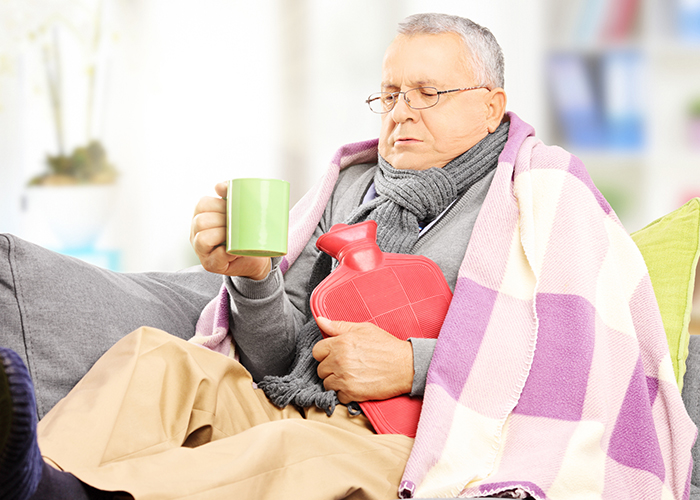 In households all across America a battle is raging. That battle is over the thermostat. Even though couples live under the same roof, they are rarely in sync when it comes to being hot or cold. The result is a lot of thermostat tampering. But if you are the type of person who is always cold, regardless the temperatures inside or out, then there might be something else going on. And that something else could require a check in with your doctor. Here’s what might be happening:
In households all across America a battle is raging. That battle is over the thermostat. Even though couples live under the same roof, they are rarely in sync when it comes to being hot or cold. The result is a lot of thermostat tampering. But if you are the type of person who is always cold, regardless the temperatures inside or out, then there might be something else going on. And that something else could require a check in with your doctor. Here’s what might be happening:
 You Have Hypothyroidism
You Have Hypothyroidism
Simply put, hypothyroidism is when your thyroid is out of whack. Specifically, it will be under-active. One of the main duties for your thyroid is to regulate body temperature. If your thyroid is making enough of the hormones that it is supposed to be producing, then you’ll feel cold all the time.
You’ve Gotten Older
A slower metabolism means the body produces less heat and slow metabolisms come with age. Studies have found that retirees lose their ability to conserve heat. The result can be those constant shivers.
 It Could Be Dietary
It Could Be Dietary
You know how a warm bowl of soup makes you feel, well, warm? The same thing can happen with so-called cold foods. If you’re drinking a lot of smoothies and iced drinks along with eating a lot of water-dense salads, then you’re going to generate the cold feelings. Swapping in a few stir-fry meals and the occasional cup of tea can help.
You’re Iron Deficient
An iron deficiency or anemia can make you feel cold more acutely. That’s because iron is vital for red blood cells to help carry oxygen through the body. When that process is hampered because of the anemia, then you’ll feel the cold. Anemia can also trigger fatigue, dizziness and a rapid heart rate and shortness of breath. Yes, this is definitely something that needs to be worked out with your doctor.
 You’re Not Drinking Enough Water
You’re Not Drinking Enough Water
Our bodies need water to help our metabolism break down food. When that process goes according to plan, then the body can generate heat. When the metabolism slows down, the cold overwhelms.
Poor Circulation
Pay attention to where you’re feeling the cold. If it is focused in your hands and feet, then that could be a sign of poor circulation. Again, this is something that needs to be addressed ASAP by a medical professional.







